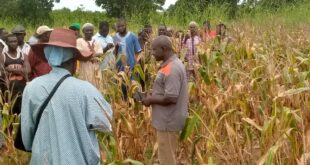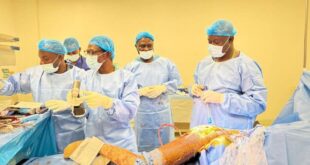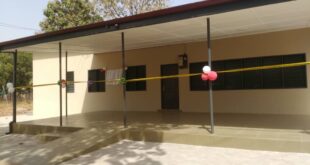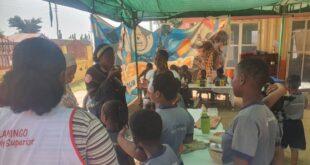Tamale, Ghana – The United Nations Development Programme (UNDP) has launched its second regional report for Ghana.
The 2018 report focuses on Northern Ghana and explores human development outcomes in the context of significant socio-economic disparities in what has historically been the most-marginalised zone in the country.
The report, themed: Bridging the Poverty Gap and Fostering Socio-Economic Transformation and Empowerment to contribute to Human Development for All, revealed that the Upper West Region has the highest incidence of poverty in the country, with many districts having poverty headcount ratios of over 80 per cent. The Northern, Upper East and Upper West regions, together, have the highest poverty headcount ratios in Ghana, exceeding the national average by large margins.
The report notes that human development outcomes are low as compared to the national average. It measured this through some three dimensions of human development; health, education and living standards. The HDI for the north is 0.116 compared to 0.575 as the national HDI.
Gender inequity is said to be another prevailing challenge confronting the area. The involvement of women in the economy is limited to low productive activities which provide little opportunity for them to make ends meet. Another major challenge identified by the report, is the threat of prolong droughts, rising temperatures and unreliable rainfall, which impact negatively on agriculture as the north is the hub of agricultural activities.
But addressing stakeholders at the launch in Tamale at the main campus of the University for Development Studies, the Minister of Planning, Prof. George Gyan Baffour, said the report comes at an opportune time when government has passed three development authorities including the Northern Development Authority Act, 2017 (Act 963), to accelerate economic and social development in the northern ecological zone.
He said the report provides a comprehensive snapshot and analysis of the state of economic and development, as well as agriculture, natural resources and infrastructure. And, therefore, should prove useful for informing the work of the Northern Development Authority and other relevant national and regional policies and strategies.
Prof. Gyan Baffour indicated, however, that the report points out that much still needs to be done, though there has been progress over the years in advancing the development of northern Ghana. Prof. Gyan Baffour mentioned the Free Compulsory Universal Education (FCUBE), School Feeding Programme (SFP), National Youth Employment Scheme, National Health Insurance Scheme, among others, as some significant interventions implemented by the government of Ghana.
Meanwhile, the Assistant Country Director of UNDP, Mr. Louis Kuukpen explained that it took over two years to conduct the human development survey before the launch. He said that this is a joint effort of the University for Development Studies, the University of Ghana and the UNDP.
He noted that the report is a three multi-dimensional index that focused on health, education and the living standards of the people. He added that the report estimates the health conditions, educational conditions, and the human living standards of the regions and compared it with the national averages.
Source: ClassFMonline.com
Check Also
Le’cole Montisorr Fosters Entrepreneurial Spirit
Tamale, Ghana – Le’cole Montisorr School in Tamale is taking a proactive approach to shaping …
 Savannah News Online Reporting Only What Matters Most
Savannah News Online Reporting Only What Matters Most



